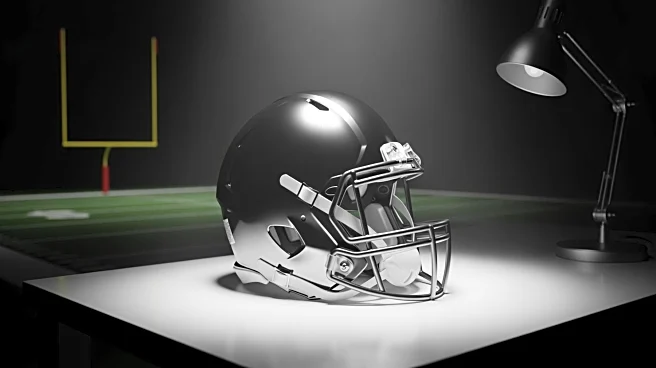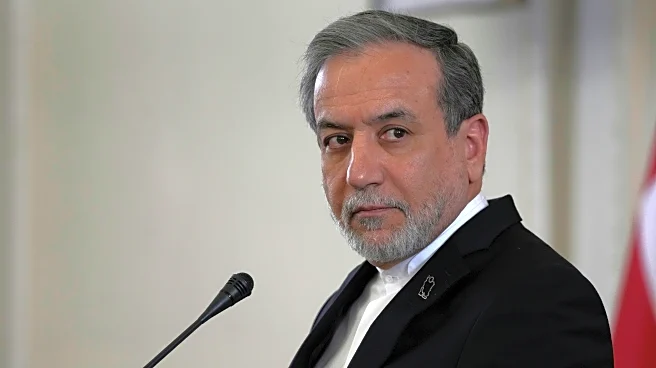What's Happening?
Tua Tagovailoa, quarterback for the Miami Dolphins, has publicly stated that he is not playing to secure his job but rather to help his team win. Despite the Dolphins' disappointing performance in the 2025
season, Tagovailoa is committed to improving his play. He acknowledges that his current performance does not meet his usual standards, as he has struggled with a league-worst 11 interceptions and a 2-7 record as a starter. The Dolphins are facing challenges beyond Tagovailoa's performance, including the loss of Tyreek Hill to a knee injury and uncertainty surrounding head coach Mike McDaniel's future. Tagovailoa is signed through the 2028 season, but his continued poor performance could lead to a reevaluation of the team's quarterback situation during the upcoming offseason.
Why It's Important?
The situation with Tua Tagovailoa is significant for the Miami Dolphins as it impacts their strategic planning and future direction. If Tagovailoa's performance does not improve, the Dolphins may consider changes in their quarterback lineup, especially if they decide to replace head coach Mike McDaniel. A new coach might prefer a different quarterback, which could lead to significant shifts in team dynamics and strategy. The Dolphins' management must weigh the potential benefits of sticking with Tagovailoa against the risks of continued underperformance, which could affect their competitiveness in the league.
What's Next?
The Dolphins' management and coaching staff are likely to evaluate the quarterback position during the upcoming offseason, especially if they decide to move on from head coach Mike McDaniel. Tagovailoa's performance in the remaining games of the season will be crucial in determining his future with the team. If he can improve his play and help the Dolphins secure more wins, it may solidify his position as the starting quarterback. However, continued struggles could lead to a search for new talent in the quarterback role.
Beyond the Headlines
The situation with Tua Tagovailoa highlights the pressures faced by professional athletes to perform consistently at high levels. It also underscores the impact of injuries and management decisions on team performance and player careers. The Dolphins' handling of this situation could set a precedent for how teams manage underperforming players and coaching staff in the future.










